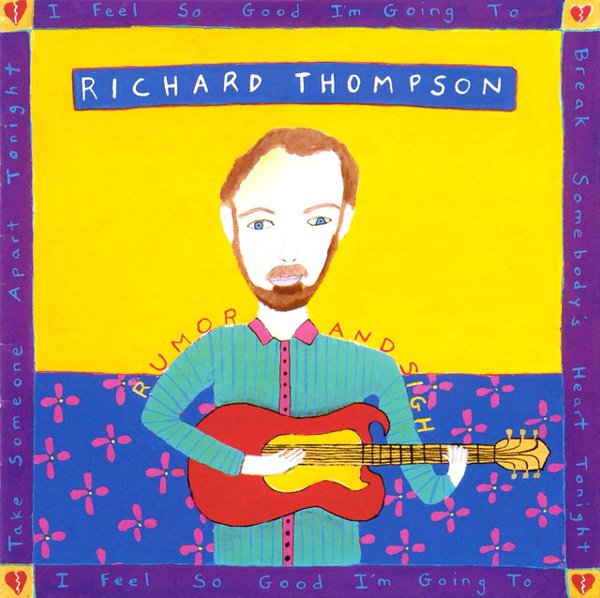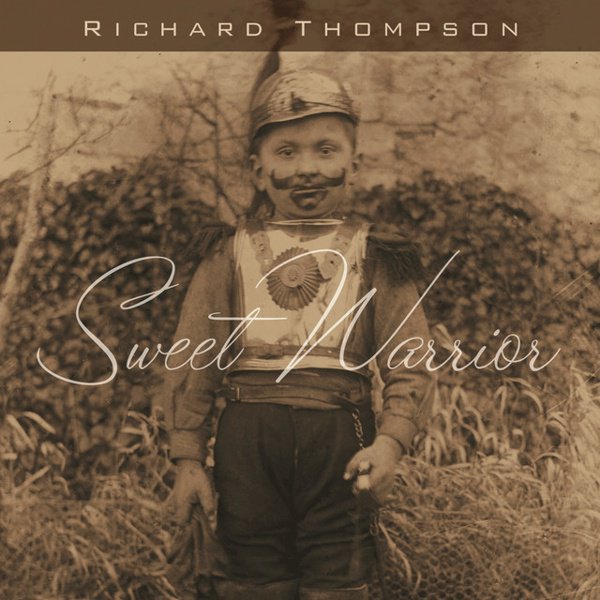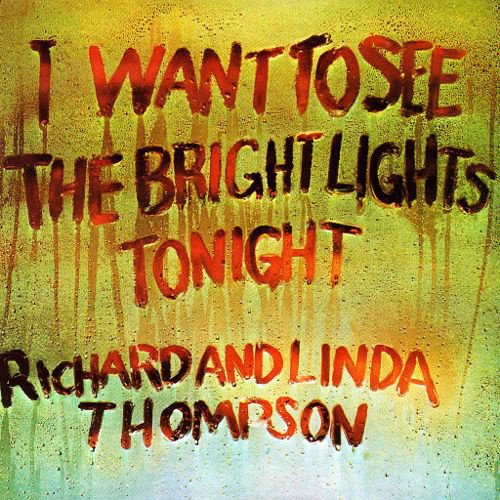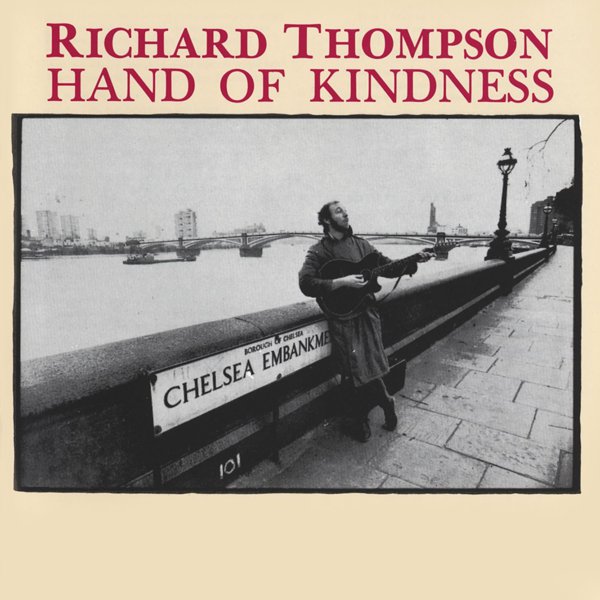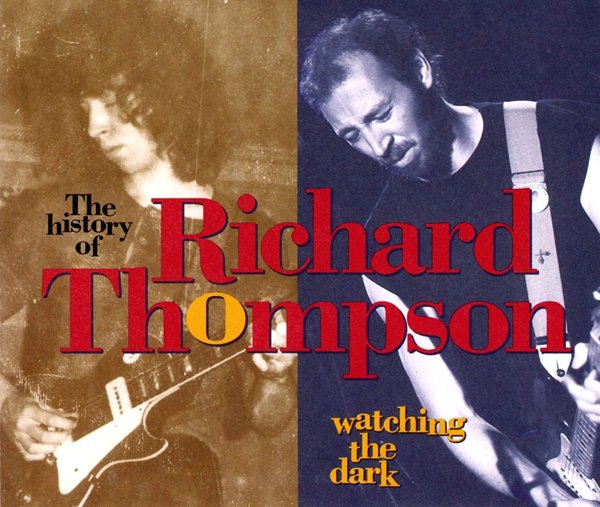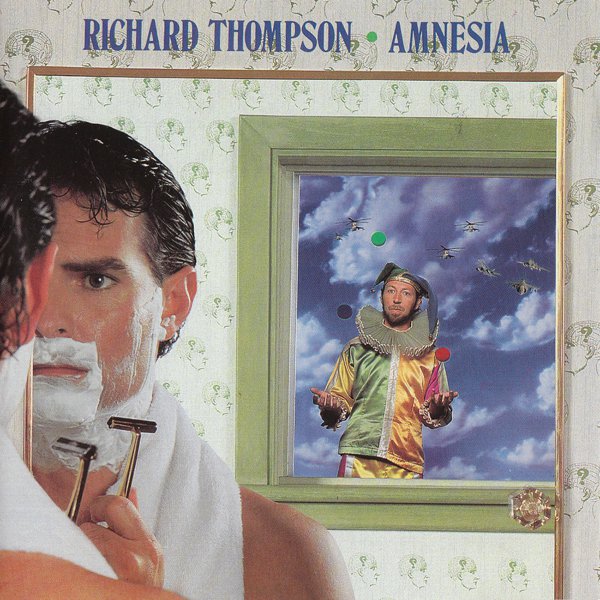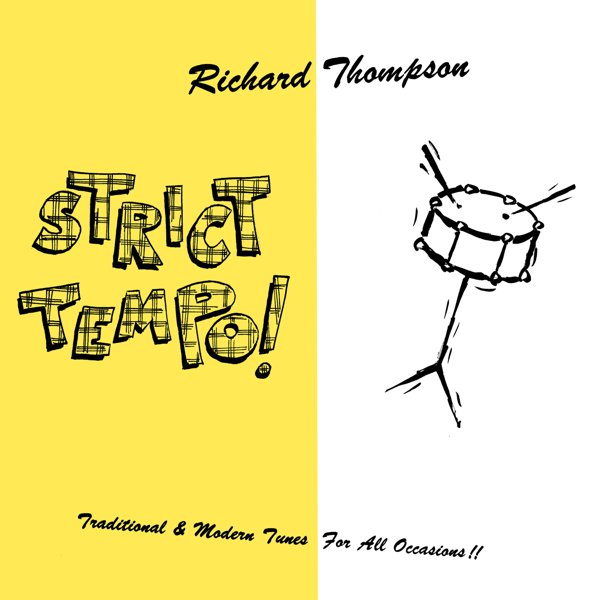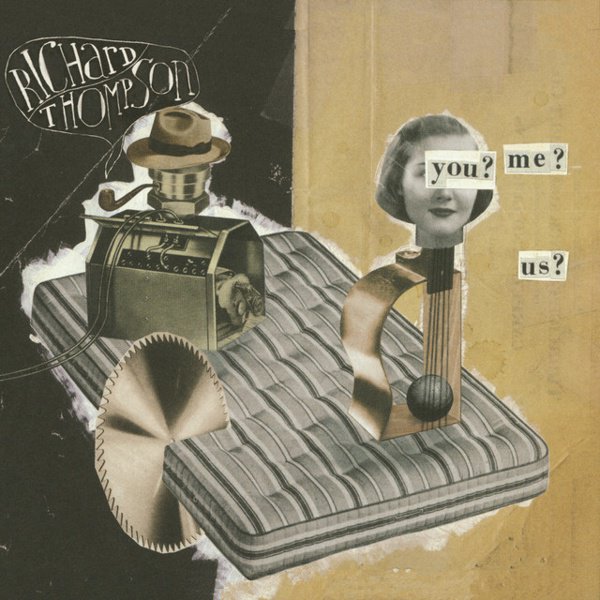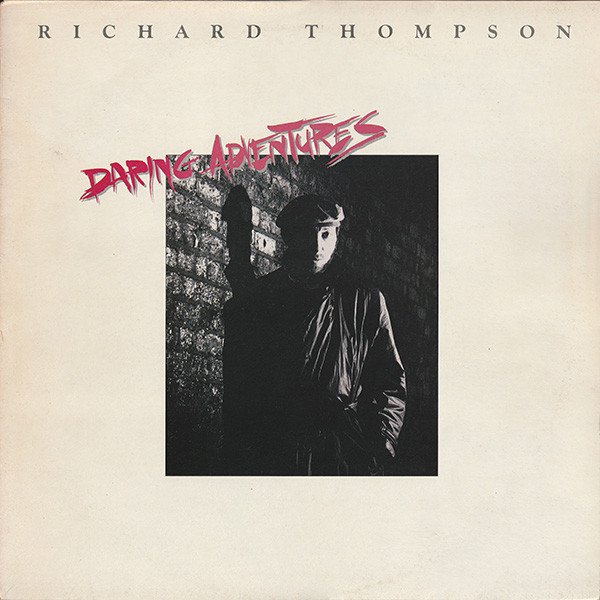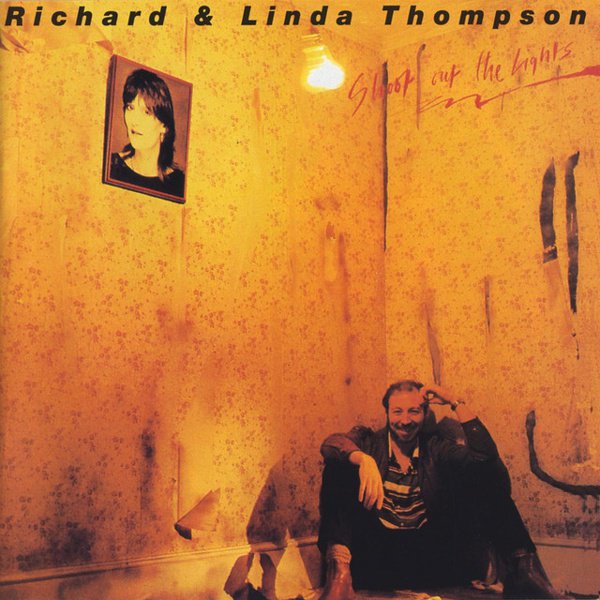Richard Thompson is a double-threat artist: both one of the 20th century’s most distinguished and accomplished songwriters, and a guitarist almost without peer. (To call him a triple threat would be a bit of a stretch: he’s a fine singer, but not an exceptional one.) Over the past 50 years he has created an astonishing catalog of work – not because he works unusually fast and releases large amounts of material, but because he works steadily and consistently, ceaselessly turning out high-quality songs and presenting them in a variety of settings and styles. From his early work as a founding member of the pioneering Britfolk band Fairport Convention to his duo albums with then-wife Linda Peters to his subsequent 40 years of solo work, he has steadily produced songs that owe little stylistic allegiance to his times while playing guitar in a style that is not only virtuosic, but also utterly personal and unique in both tone and musical content.
His guitar playing is worth a brief side note. While most electric guitarists of his generation built their approaches on American blues and R&B, the foundation of Thompson’s style is almost entirely British: when he bends a note, it sounds like Northumbria or Glasgow rather than Mississippi or Chicago; his rhythmic structures owe more to strathspeys and polkas than to funk or soul. He rocks as hard as anyone, but never sounds like anything other than what he is: an Englishman, reinventing the structures of rock and roll through the eyes and ears of a very different culture.
In addition to his innovative and unique guitar playing, Thompson has always been noted for the dour and acerbic nature of his songs. He has observed in the past that those who hear only misery and bile in his writing are missing his sense of humor, and he has a point – but in fairness, the humor is sometimes hidden pretty deeply. It’s hard to misread lines like “There’s nothing at the end of the rainbow/There’s nothing to grow up for anymore” or “My dreams are withered and died.”
After leaving Fairport, Thompson undertook a brief but illustrious career as half of a duo with his wife Linda; their marital and musical union produced six albums, the last of which, Shoot Out the Lights, is one of the most searing portraits of a dissolving marriage in pop music history. Rolling Stone magazine ranked it #9 in its list of the best albums of the 1980s, and it’s easy to see why: the songs are tight, the lyrics sharp and incisive, the musicianship exquisite.
Following their divorce, Thompson embarked on a solo career that has produced little in the way of international hit songs, but lots of world-class music. Highlights have included Amnesia (with its heartbreaking portrait of a fading bombshell and the sharply anti-American “Yankee, Go Home”), Rumor and Sigh (which features his biggest American hit, “I Feel So Good” as well as the brilliant motorcycle-rebel parody song “Vincent Black Lightning”), and Sweet Warrior. His fan base remains modest in size but international in scope – and doggedly faithful.

